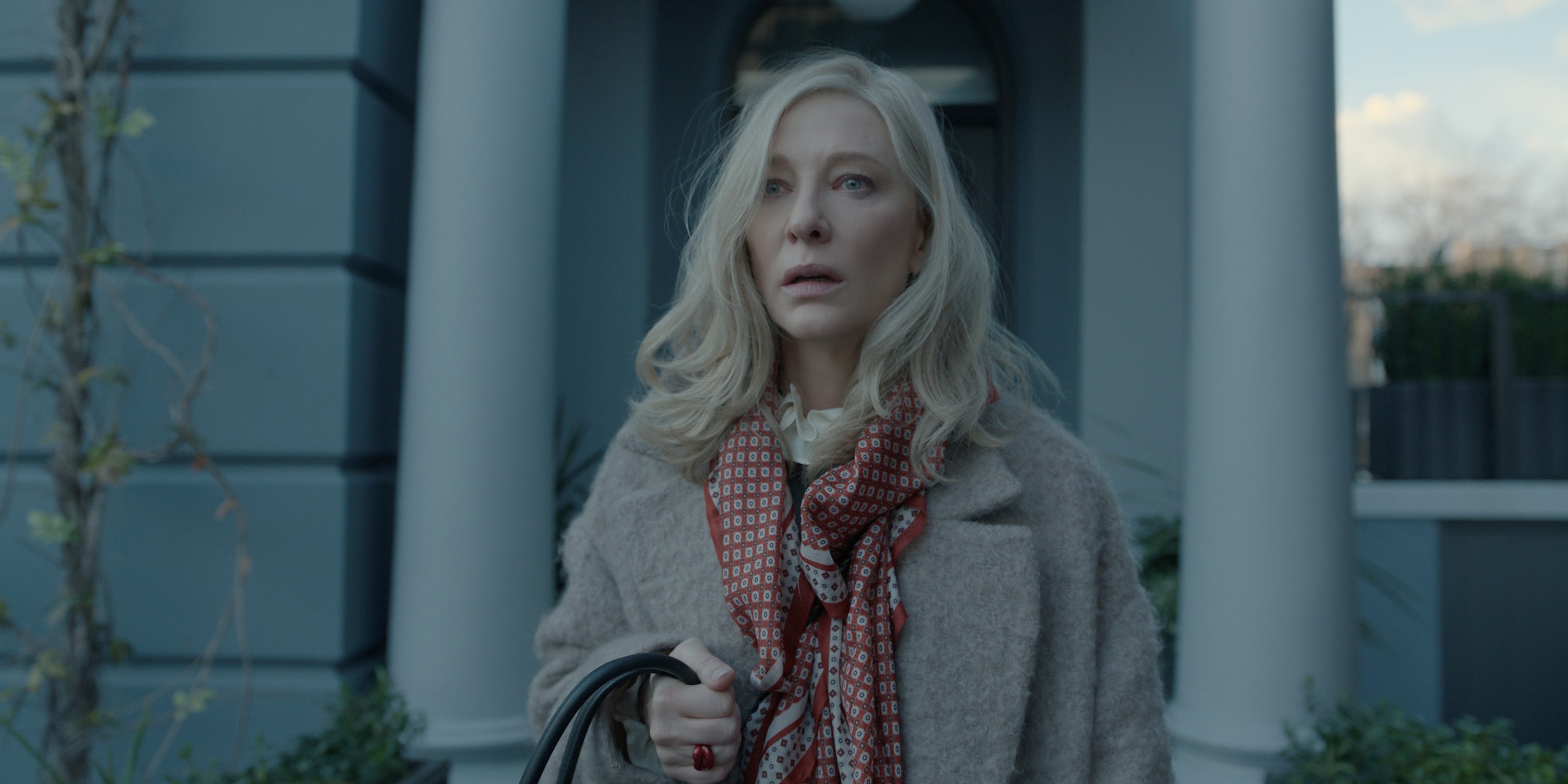Cate Blanchett Faces Her Haunting History in "Disclaimer" | Vanity Fair

At first glance, the Apple series Disclaimer, which premiered here at the Venice Film Festival on Friday, seems easily figured out. It’s a mean little literary thriller centered on the disruption of a plush, monied existence. It is about the pretensions and selective privileges of success and wealth, and about a more humble figure tearing it all down. Sure, it’s got a bit more pedigree than some similar projects—Alfonso Cuarón directs all seven episodes; Cate Blanchett stars in a rare TV role—but otherwise Disclaimer seems to fit cozily alongside shows like The Undoing or Big Little Lies.
The first two episodes of the series, which will drop on Apple October 11, support that assertion. Blanchett plays Catherine Ravenscroft, an award-winning documentarian who lives in an eye-popping London duplex with her doting husband, Robert (Sacha Baron Cohen). After a ritzy gala one evening, Catherine returns home to find a package containing a novel, one that appears to be a thinly veiled account of something terrible that Catherine did years ago. Thus she is plunged into the mystery of its creation—though we in the audience know that a recently fired (or forcibly retired) school teacher, Stephen (Kevin Kline, plummy of accent), is involved—all while trying to preserve her good name.
Thus begins Catherine’s spiral into ruin, we assume. In its first episodes, Disclaimer seems to take pleasure in the unearthing of buried secrets and the cringe of personal and professional embarrassment. And Blanchett is beguiling, bringing to mind her razor-sharp performance in Notes on a Scandal—a perfectly nasty movie about a comfortable woman taking a fall from grace with the help of a meddlesome elder. Cuarón, who also adapted Renée Knight’s novel into a script, stages the proceedings as seriously as he would one of his premium-grade films. Disclaimer is mounted with restrained, bespoke style—peppered with the occasional flair of one of Cuarón’s signature long takes.
Though some of its dialogue is stilted, and Kline could maybe turn the puttering old British man knob down a few clicks, Disclaimer glides smoothly through its opening hours. Are creatives of Cuarón and Blanchett’s talents slumming it a little? Maybe. But what’s wrong with some elegant genre fun?
As Disclaimer continues to unfold, though, it deepens in surprising and persuasive ways. There is a poignant plot thread about Catherine’s son, a failure-to-launch twentysomething played with weary and defensive slouch by Kodi Smit-McPhee. (Between this and Maria, he’s having quite a time with the grande dames of Venice.) Flashbacks to a summer in Italy shift between arousal and despair, slowly and compellingly mapping and remapping the terrain of a tragedy. Disclaimer reveals itself as a drama of misperception, of the dangers of failed communication, of the all-too-human tendency to accept our version of things as gospel truth in order to preserve an idea of the world.
The series has a rich texture, both tactile and dreamy. When the story wades into the hot-button issue of cancellation, it stumbles. But its emotional arithmetic is just right: heightened to near melodrama while also dreadfully credible. Blanchett hums along as Catherine’s condition worsens; watching her tread water is as invigorating as it is exhausting. Leila George is striking as a younger, hungrier, more reckless version of Catherine, ably rising to the formidable task of playing the same character as Cate Blanchett. Lesley Manville also potently registers as Stephen’s wife, crafting an exacting portrait of a woman reeling from shock.
As Disclaimer grows ever more earnest, one might begin to miss the implied wickedness of its first few hours. Gradually, though, the show’s sincere entreaty proves effective; and anyway, there are still some suspenseful thrills to be enjoyed almost to the very end. As popular and well-reviewed as Disclaimer’s source material is, I have been asked not to spoil anything. Thus I won’t say much more about the series, other than to encourage you to stick with the show past its somewhat awkward premiere episode. Disclaimer grabs tight hold as it goes, sending us sifting through interpretation and inference on the way to a disarmingly resonant finale.
The series might benefit from a binge watch, one of those drawn-out plunges into a story that best approximate the sensation of reading a juicy novel. On a less steady basis, Disclaimer’s flaws might be more apparent, like its intrusive voiceover (Kline narrates some, Indira Varma does the rest) and the perhaps irrational insistence that no one involved in this sorry situation would simply demand a moment to speak to clear things up. Disclaimer does eventually address the latter complaint rather convincingly, arguing that some stories are almost impossible to tell, no matter the circumstance. In that moment of explication, Blanchett and Cuarón connect Disclaimer to a vast and troubling truth: far too often, we don’t actually know what we think we do.




